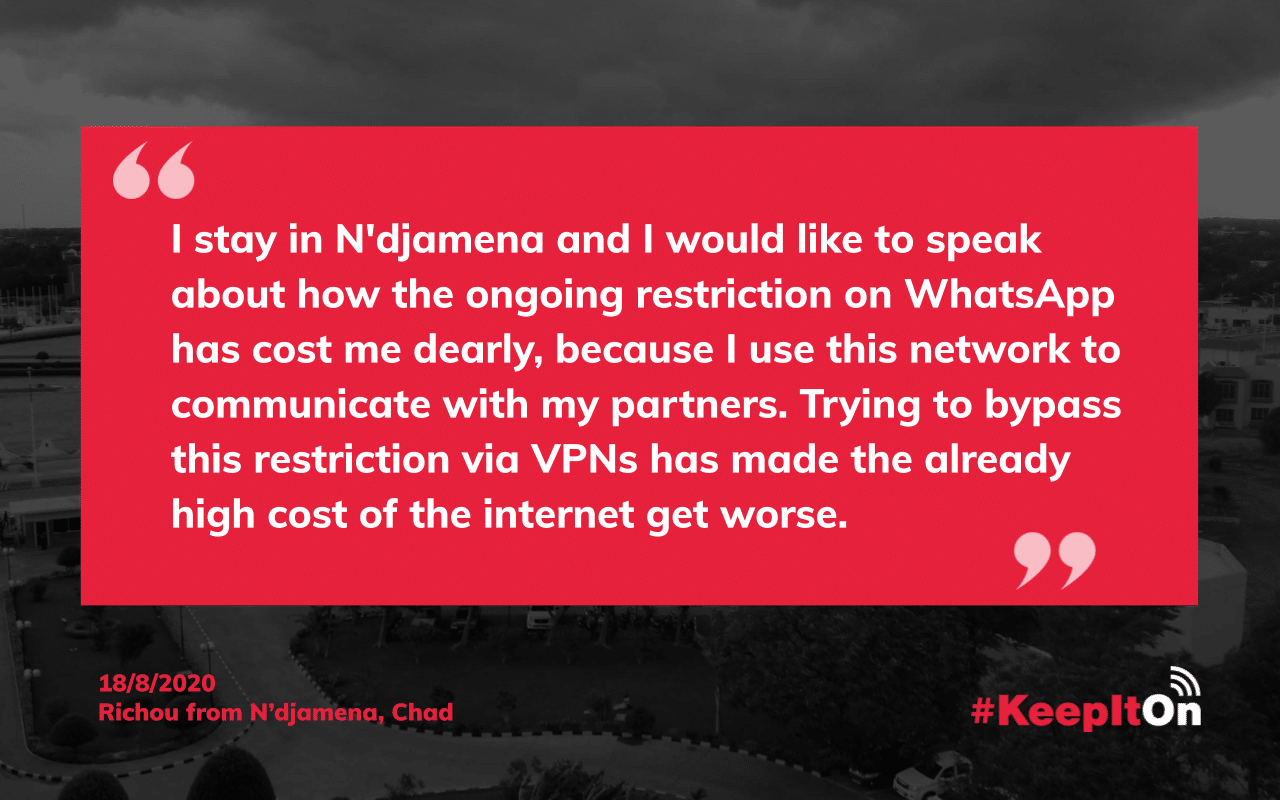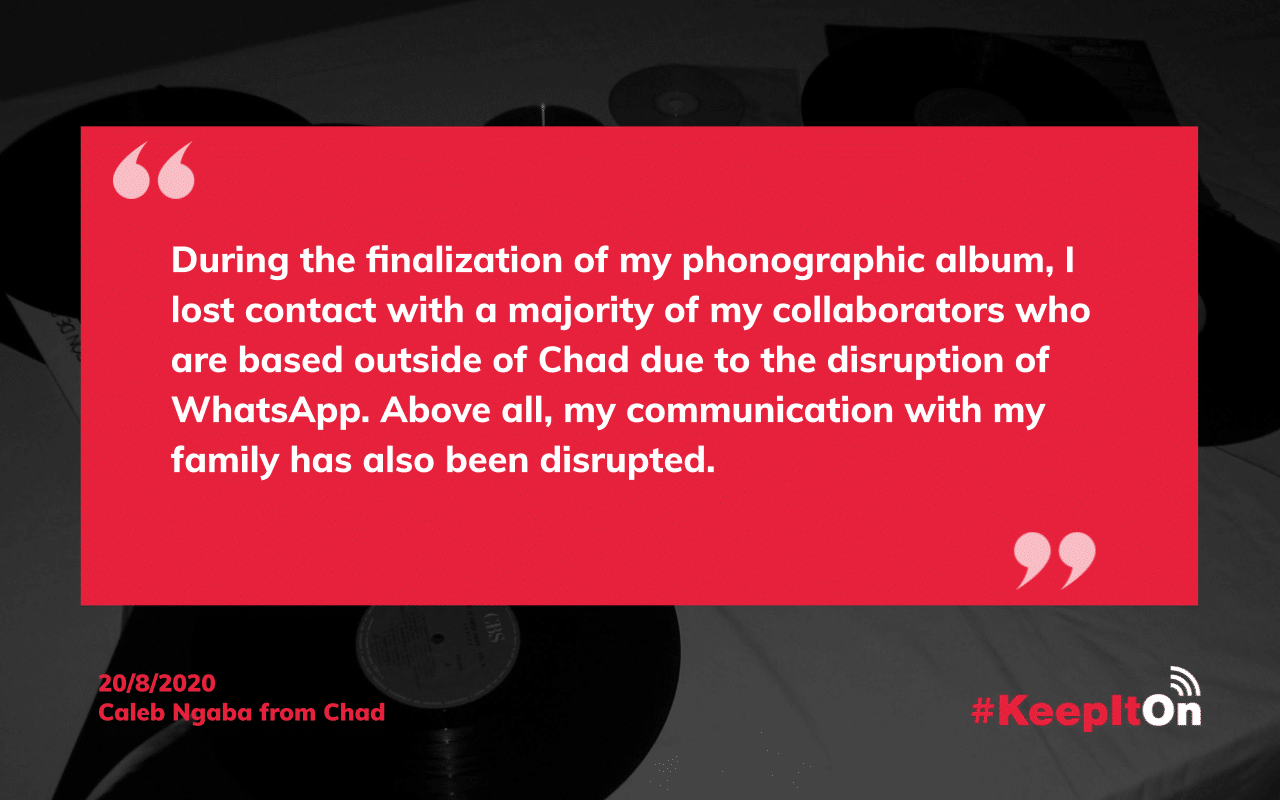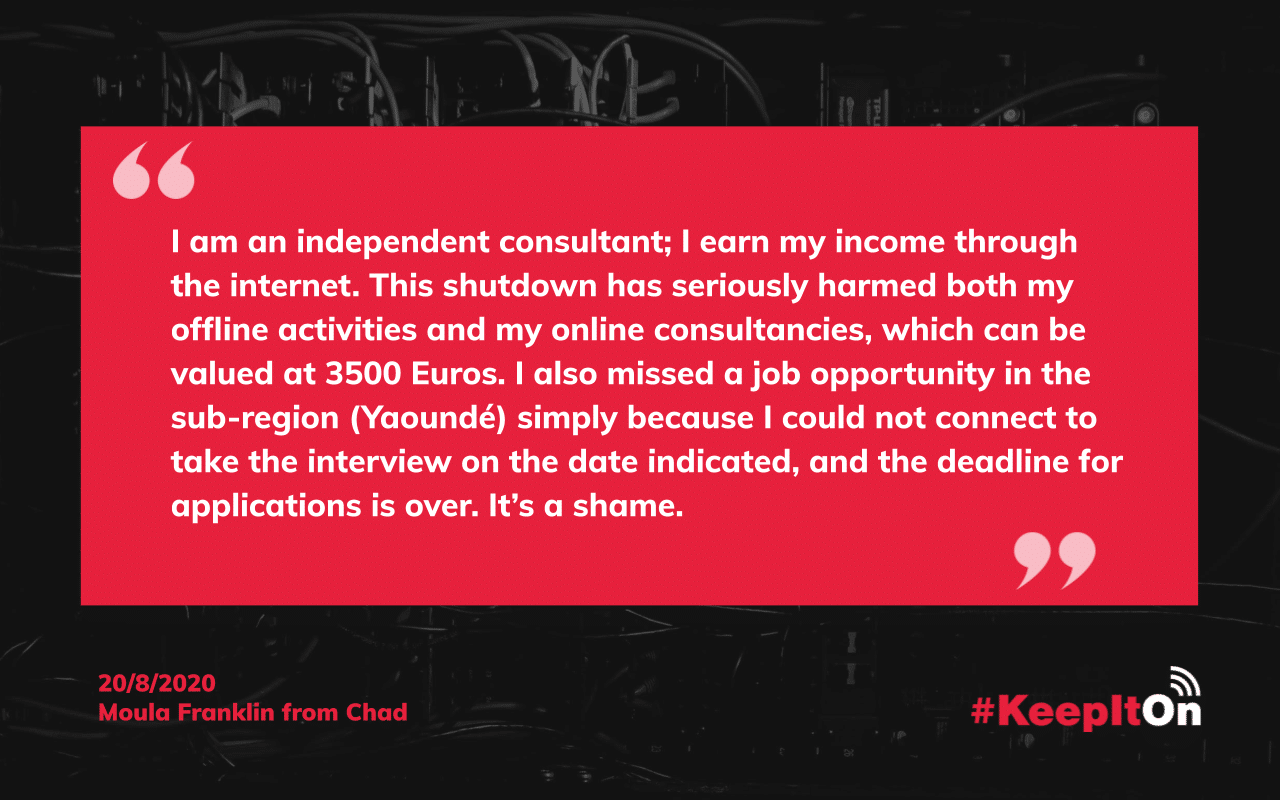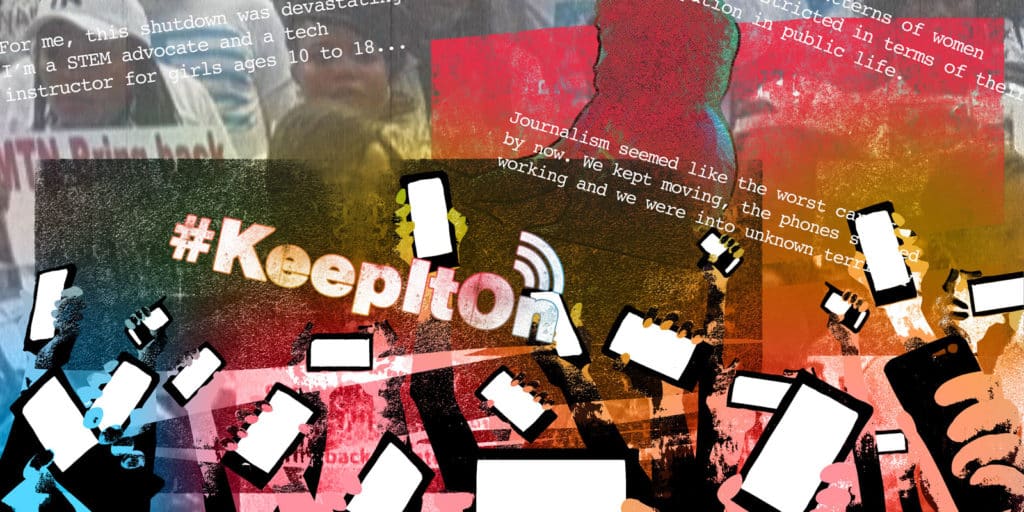Pour le français, lisez ici.
Since July 22, the government of Chad has blocked access to WhatsApp, and up until August 18, authorities also cut access or slowed down the internet in parts of the country. Citing the need to prevent the spread of messages “inciting hate and division” on social media, government authorities reportedly took these drastic measures to prevent dissemination of a video and images, taken on July 14, 2020, showing a Chadian military officer opening fire on a mechanic who also attacked him with a knife during a dispute. To date, WhatsApp remains blocked throughout the country, and people are resorting to the use of VPNs to get access to the platform.
During COVID-19, more and more people depend on the internet and social media for their work and daily activities. In Chad, the ongoing blocking is interfering with the capacity to stay connected, make a living, keep safe, and maintain everyday life.
Through the Shutdown Stories project, Access Now collects stories about how internet shutdowns impact people’s lives, work, education, business, and relationships. The common refrain in these testimonies is the fact that shutdowns severely disrupt people’s lives and livelihoods — reaffirming the need for all governments to stop flipping the Kill Switch instead of using progressive and reasonable measures to resolve the problems and crises in their respective countries.
WhatsApp is one of the most popular social media platforms in Chad, and blocking the platform is clearly excessive and violates the rights of the Chadian people. Yet Chad has a history of imposing this kind of shutdown on its people. Over time, this has caused significant harm to people’s businesses and education, and many other aspects of life. Between 2018 and 2019, Chad cut access to social media platforms, including WhatsApp, Twitter, Facebook, Instagram, and YouTube, for a staggering 472 days. The government cited “security reasons” in an attempt to justify the disruptions.
Below, we share stories to show how the ongoing censorship is negatively impacting the lives of the people the government is supposed to protect. We also share ways you can speak out on their behalf.

![Isip on August 19, 2020 14:33:36 - I have been a health professional over the past 13 years. I work mainly in private and humanitarian health facilities. Since I returned from my last training in public health I have been looking for a job for four months, and suddenly internet censorship increased my pain, as I cannot access the recruitment platforms. My hope is lost[!]](https://www.accessnow.org/wp-content/uploads/2023/01/KeepItOn-Story-Isip-Chad.png)


How you can help fight shutdowns in Chad
If you agree that the internet and digital communications tools enable people to exercise their human rights and that internet shutdowns facilitate violations of these rights, you can do something to stop it. Help us amplify the #KeepItOn coalition’s call to the government of Chad to end the ongoing blocking of WhatsApp by taking the following steps:
- Share this blog post on social media using the hashtag #KeepItOn and #InternetShutdown
- Tag the President of Chad (@MIdrissDebyItno), the Minister of Communication (@Cherif_MZ), the internet service providers (ISPs) (@airteltchad, @tigotchad) and any other actor who has a say in ending the WhatsApp blocking.
- Share our Shutdown Stories form (English | French) with your network in Chad to help us gather more testimonies for our advocacy work, which can also help serve as evidence of harm in court and international forums.
Learn more
#KeepItOn is a global campaign that unites more than 220 organizations around the world fighting to end internet shutdowns through grassroots advocacy, direct policy-maker engagement, technical support, and legal intervention.
If you have questions about internet shutdowns, you can get answers by subscribing to our Kill Switch podcast.
